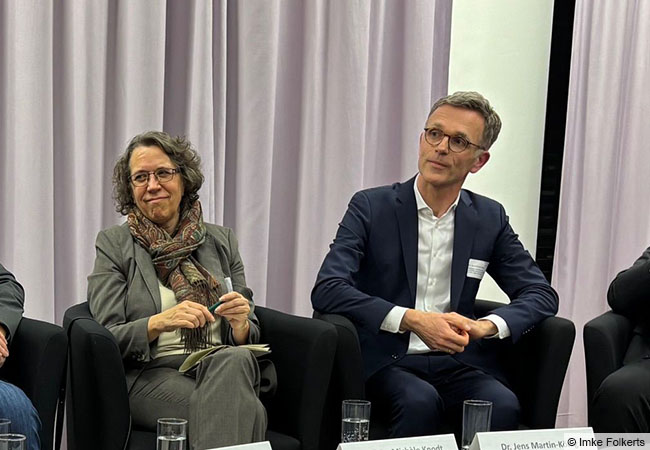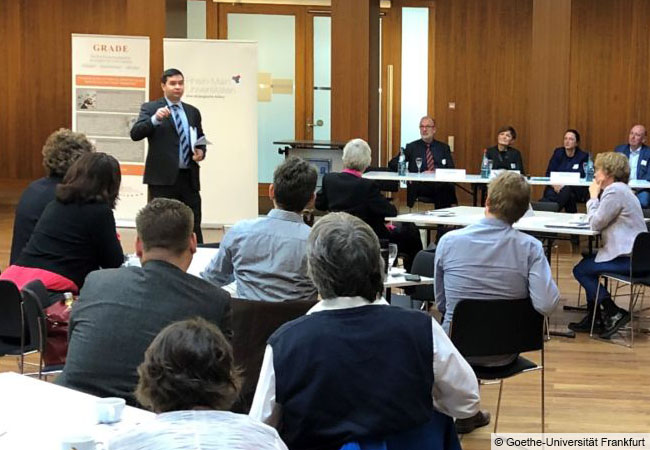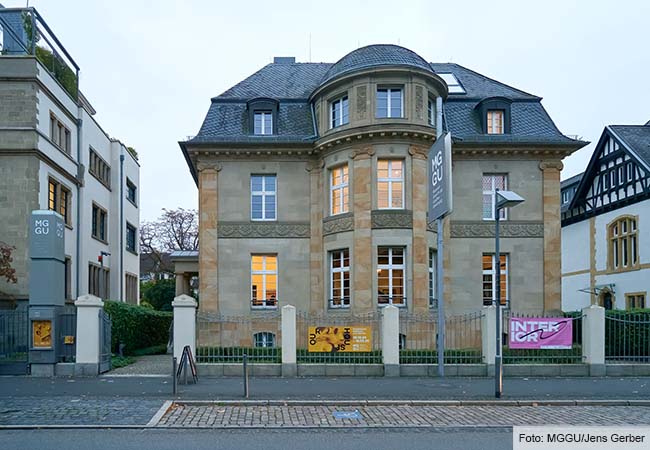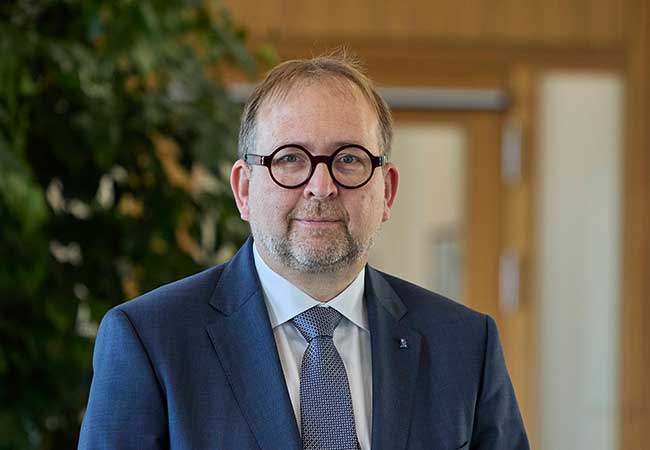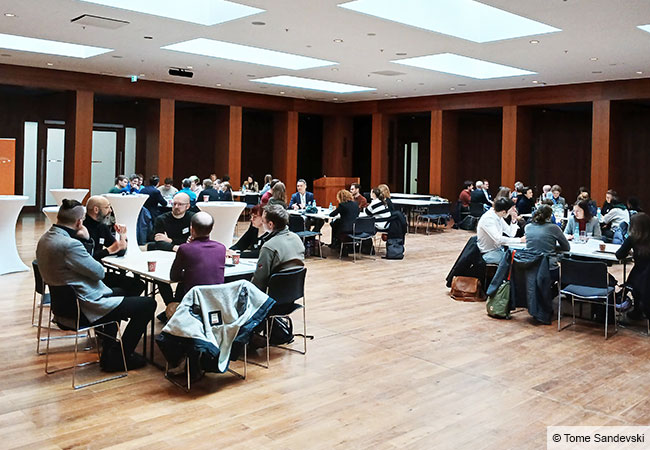Whether it concerns biased Artificial Intelligence or misattributed graves of Viking women – gender, sex and diversity can have very differing and sometimes unexpected impacts on research. To integrate reflections on gender, sex and diversity even more strongly in its research activities, Goethe University has now published a ten-point paper.
„Goethe University wants to be a pioneer when it comes to providing better science that is as fair as possible to as many people as possible,“ said University President Prof. Enrico Schleiff in summarizing the goal of the ten-point paper on gender, sex and diversity in science and research. The University’s Executive Board first presented the paper and the concrete steps outlined therein at an event held on June 19, 2023, which brought together external experts and Goethe University’s research community. The ten points aim to strengthen considerations on the importance of gender and diversity in various disciplines. For example, it states: „In its mission statement, Goethe University Frankfurt acknowledges the social responsibility of research and teaching, including the need to align science with the requirements of as many people as possible, and to integrate different perspectives.“
„Every researcher should ask themselves: to what extent do aspects related to gender, sex and diversity play a role in my research? Not just because these considerations are becoming more important for project proposals, but because we are convinced that doing so will produce more valid research results. By becoming more aware of this, and exchanging knowledge and insights on the topic, our research will become both more innovative and more creative,“ Schleiff said a press briefing held on June 21, 2023, during which the ten-point paper was presented. In addition to describing the status quo, the paper outlines concrete measures and goals aimed at further improving inclusion in the future. As such, the university not only plans to anchor the topic in the next university development plan, but also calls for a stronger reflection of these aspects in internal calls for proposals. In addition, they should also be more firmly integrated in training and continuing education.
Nothing better illustrates to laypersons the importance of the topic than examples from medical research: If medications are not tested in a manner that is both equal and differentiated on women and men alike, they will be difficult to apply correctly. Dr. Lena Marie Seegers and Prof. David Leistner from Frankfurt University Hospital’s Department of Cardiology see a lot of potential in better positioning medical research to account for the diversity of people. „We will soon establish a women’s heart center [Women’s Heart Health Center Frankfurt] at Goethe University, which will conduct gender-sensitive medical research. Gaining more expertise in this field can take medicine in Germany a big step forward,“ says cardiologist Seegers, who spent two years at Harvard University in Boston researching gender differences in coronary arteries. Women often ignore cardiovascular symptoms, she says, because they are used to fluctuations in their well-being, which they experience throughout their lives. However, she adds that a specific look at female health is particularly important during phases of hormonal change, such as pregnancy and menopause. The connection between rheumatic or gynecological diseases and the risk of heart attack is still relatively unexplored, she says, adding that, „Women in Germany have a significantly higher risk of dying from a heart attack than men.“
Although differentiated and sophisticated gender research has existed in the educational sciences for a long time, so far it has not constituted a cross-sectional topic. A lot still needs to be done in this regard, explained Prof. Bettina Kleiner, educationalist and director of the Cornelia Goethe Center. Although her discipline focuses on more than the pedagogical action fields represented by schools and daycare centers, the reality children encounter here constitutes a formative experience for the social gender order. Whereas, on the one hand, schools reflect a society’s living conditions, on the other, it falls upon them to socialize children and young people. In so doing, schools always impart values and norms that merit further reflection. „Gender stereotypes continue to be reproduced in school lessons, resulting, among others, in the formation of different subject-related and professional preferences that tend to be disadvantageous for women in terms of their careers. With regard to queer children and young people,“ Kleiner continues, „their personal realities are still rarely – much less adequately – represented. That is why we need to sensitize prospective teachers to stereotypes in their own thinking.“ The extent to which equality among researchers can be achieved definitely plays an important role, too: „Of course, it also matters who is doing the research,“ she is convinced. For Kleiner, Goethe University’s ten-point paper constitutes an „important commitment to strengthening gender reflexivity, diversity and equity in research.“
Goethe University’s ten-point plan is available for download at https://www.uni-frankfurt.de/139066042


